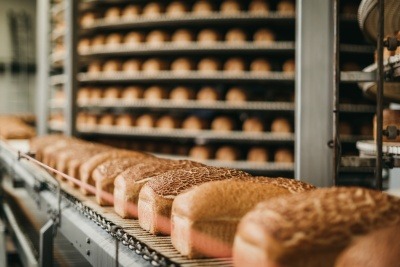Unprecedented retail program to reduce GHG emissions
In an industry-first, eight retailers representing 80 per cent of the UK grocery retail market have joined forces with WRAP and WWF UK to reduce greenhouse gas (GHG) emissions.
 The partnership – named the Retailer Net Zero CAP (Collaborative Action Programme) – aims to move the sector towards net zero by focusing on the recording of data around Scope 3 GHG emissions that are produced indirectly by retailers, such as through waste management or the transportation of goods. Aldi, Co-op, Lidl, M&S, Morrisons, Sainsbury’s, Tesco, and Waitrose have committed to the programme.
The partnership – named the Retailer Net Zero CAP (Collaborative Action Programme) – aims to move the sector towards net zero by focusing on the recording of data around Scope 3 GHG emissions that are produced indirectly by retailers, such as through waste management or the transportation of goods. Aldi, Co-op, Lidl, M&S, Morrisons, Sainsbury’s, Tesco, and Waitrose have committed to the programme.
Phase one of the two-phase approach will begin this year and see retailers committing to ensure consistent measurement and reporting of their Scope 3 greenhouse gas (GHG) emissions. It will also focus on scoping high-impact areas for collaboration to reduce GHGs from food that is sold in UK supermarkets.
Released in May, the WRAP Scope 3 GHG measurement and protocols is a consistent methodology designed by WRAP for businesses to measure and track progress in reducing supply chain GHG emissions. WRAP says that currently the range of different approaches and methods used to measure the carbon footprint of food and drink products results in confusion and inefficiencies across the sector.
Phase two of the Retailer Net Zero CAP will begin in 2024 and will take action on the high-impact opportunities identified in phase one, and secure the investments needed to collaborate and meet targets. The overall programme aims to assess the action currently being undertaken by retailers on key areas of GHG mitigation and identify gaps.
UK GHG food emissions fell by 12 per cent between 2015 and 2020, but the rate of reduction still needs to increase by 60 per cent to meet sector targets by 2030. Without urgent action, the global food system will play a large part in driving the world beyond 1.5C, with estimates that food and drink consumed in the UK are responsible for around 35 per cent of territorial emissions.
The Courtauld Commitment 2030 to cut GHG emissions
The announcement also builds upon the pledge for action on climate under the WWF's Retailers' Commitment for Nature group and WRAP’s Courtauld 2030 GHG target, which aims to halve emissions associated with UK food and drink by 2030. Phase two will use the Courtauld Commitment 2030 as a pre-existing governance vehicle.
Through collaborative action across the entire UK food chain, delivering farm-to-fork reductions in food waste, GHG emissions, and water stress, Courtauld 2030 aims to help ensure that the UK food and drink sector achieves UK and global environmental goals.
Harriet Lamb, WRAP’s CEO explains: “We need to transform our food and drink system if we are to stand any chance of achieving our net zero goals and mitigate the worst impacts of the climate crisis.
“This is the challenge of our generation, and it is encouraging to see the UK’s leading retailers stepping up to this challenge with focus and determination. We’re looking forward to cracking the nut of consistent measurement and reporting on greenhouse gas emissions in food and drink supply chains (Scope 3), so that we can unlock action to reduce those emissions at pace and at scale.”
WRAP says that it will ensure the work links with UK key initiatives on Scope 3 data in food including the Food Data Transparency Partnership and the British Retail Consortium’s Mondra Coalition to ensure the approach taken to Scope 3 reporting is both rigorous and practical.
Kate Norgrove, Executive Director of Advocacy and Campaigns at WWF, added: “The food on our plates is driving climate chaos and wreaking havoc on nature – our main ally in the fight against climate change.
“Urgent action to address this crisis is non-negotiable and we welcome this key step from leading food retailers to align the sector on climate measurement and reporting. Food businesses must now supercharge the pace of climate action through this programme, to put the food system on a sustainable footing and bring our world back to life.”
CEOs from the eight retailers have stressed the importance of the programme, with Simon Roberts, CEO of Sainsbury’s, saying that ‘the urgency of the climate crisis means that now, more than ever, industry-wide collaboration is critical to accelerate progress at the speed and scale required to limit global warming to 1.5 degrees’.









